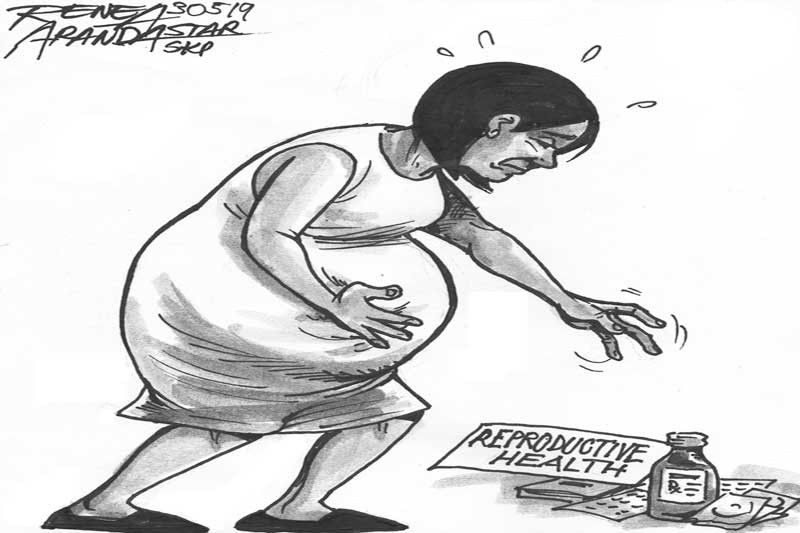EDITORIAL - Action for women’s health

The Supreme Court has upheld the constitutionality of Republic Act 10354 or the Responsible Parenthood and Reproductive Health Act of 2012. The Food and Drug Administration has vetted Implanon and Implanon NXT, so the government can give women access to the implants along with nearly 50 other contraceptives certified by the FDA to be non-abortifacient.
There is no more legal impediment to the full implementation of the RH law. The only problem now, as in most laws in this country, is in the efficient implementation. As the country joined the global observance on Tuesday of the International Day of Action for Women’s Health, the Commission on Population reported that 18 percent of Filipino women want to use contraceptives but lack access to them.
Dr. Junice Melgar, whose group Likhaan Center for Women’s Health operates clinics in depressed communities of Manila and other areas, said implementation of the RH law remains slow despite the lifting of legal impediments.
Melgar said much depends on the political will of the heads of local government units. LGUs, she said, are mandated by law to implement the family planning program of the national government regardless of the religious beliefs or other personal considerations of the local officials.
President Duterte, who included the full implementation of the RH law in his 10-point socioeconomic planning agenda, had issued an executive order amid the long wait for the Supreme Court to lift its temporary restraining order on the law. With the President’s high popularity, women’s groups believe there can be a greater push from the executive to implement the RH law fully.
Women’s health, however, covers other aspects, including ailments that tend to be aggravated by poverty and inadequate health care such as tuberculosis. Domestic violence and other forms of abuse also affect women’s physical, psychological and emotional health, and are seen as factors in HIV infection.
Several laws have been enacted in the past decades, promoting the welfare of Filipino women. Studies show that women in this country are among the most empowered in the world. Yet there remains a wide room for further reforms.
- Latest
- Trending





























